
Salty Sam’s Fun Blog for Children
Post Number 23
Pond Life
Hello Everyone 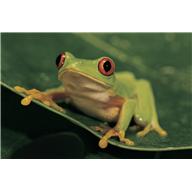
When Bill and Bob and l went to put some bird boxes up in the woods last week, we found a small pond in amongst the trees. ln fact Bob nearly fell into it!
Ponds can have different kinds of creatures living in them from those that are living in the river.
Pond water is still; not like the moving water of the river.
The ponds that have the most wildlife in them are the ones that are in the sunshine rather than in the shade. They have little fish like minnows and other interesting creatures.
Sometimes there are bulrushes and other plants around the sides of the pond that are full of little animals, especially in the summer. There are tadpoles (which are baby frogs and toads) for example; that grow in the still waters of the pond.
Tadpoles hatch out of little eggs called spawn. They start off looking like tiny fish; just a head and a tail. They live in the water and breathe like fish do through gills on their sides. They then grow legs and their tails begin to disappear into their bodies. Next they start to sprout arms.
When their lungs have grown properly, the baby frogs and toadlets can crawl out of the water. They grow bigger and bigger. Frogs and toads can live in and out of the water. They are what we call amphibians.
Some people find it quite difficult to tell the difference between frogs and toads. Generally speaking frogs have smooth skin and hop; toads have knobbly skin and crawl.
There are lots of insects around ponds as well. Some of them like pond skaters are so light that they can actually move on the surface skin of the water and don’t sink down into it.
Dragonflies are the most spectacular though. They can be enormous and such bright colours as well: scarlet, green or turquoise. They are very clever at flying. They can hover in one place like helicopters. There are 33 different types in the British lsles alone and amazingly they have been around since prehistoric times. There have been dragonflies on earth for 300 million years.
lf you want to look at wildlife in a pond, you can get a little net, trawl it about in the water and then tip it up into something like a white plastic ice cream box that has some pond water in it to easily see the creatures that you find. They will show up well against the white base and sides of the box.
Or you can dip the box into the water, pull it out and see what is in there. Don’t forget to take a book with you so that you can learn about what you see.
Also, you must put everything back, oh, and don’t fall in the water like Bob nearly did!
Bye bye everyone – don’t forget to subscribe to my blog!
Love and kisses
Salty Sam

www.christina-sinclair.com
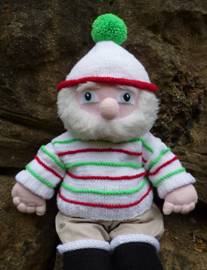
![]()
Bill and Bob’s Joke of the Week![]()
![]()
Bill: Where do tadpoles turn into frogs?
Bob: l don’t know.
Bill: ln the croakroom!

Salty Sam © Christina Sinclair 2015
Unauthorized use and/or duplication of material from this blog without express and written permission from this blog’s author and owner is strictly prohibited.
Links may be used to www.christina-sinclair.com

Picture Gallery

Bulrushes
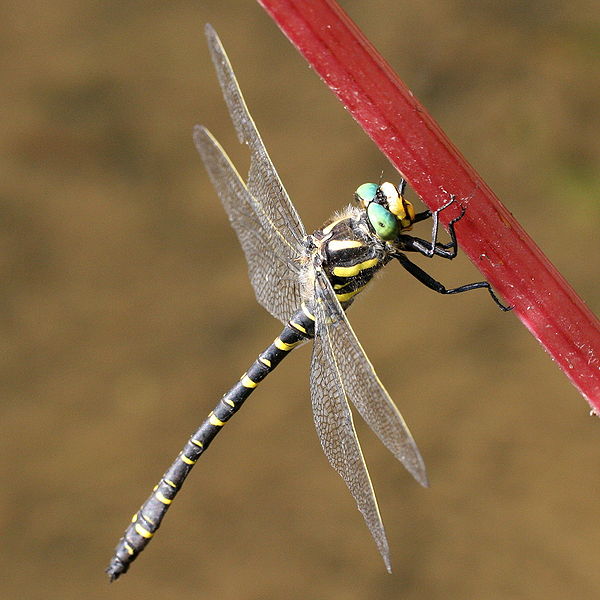 Dragonfly
Dragonfly
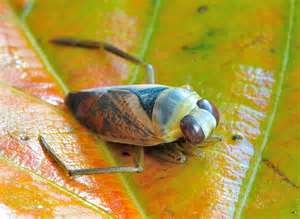 A water boatman – he looks as though he has his own oars when he is on the water
A water boatman – he looks as though he has his own oars when he is on the water
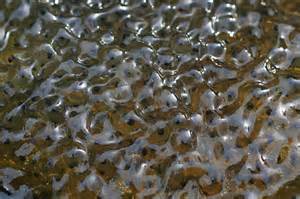 Frog spawn
Frog spawn
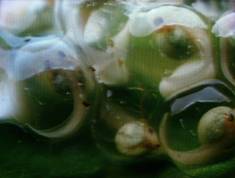 Frog spawn with developing tadpoles
Frog spawn with developing tadpoles
 Tadpoles
Tadpoles
 From tadpole to frog
From tadpole to frog
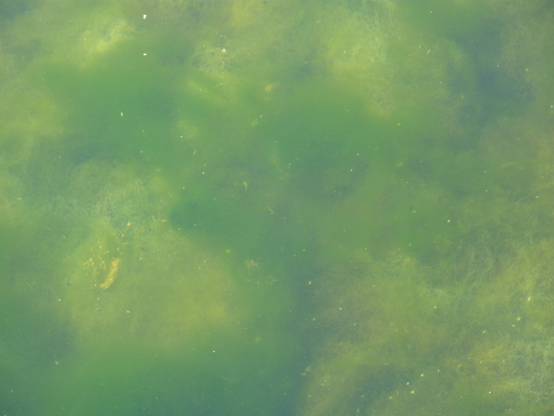
Water birds feed on weed under the water
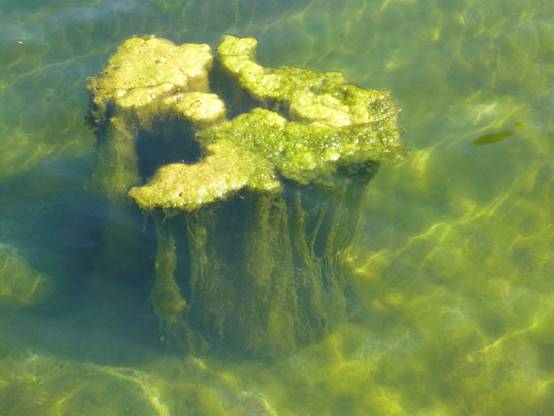
The weed grows up towards the sunlight
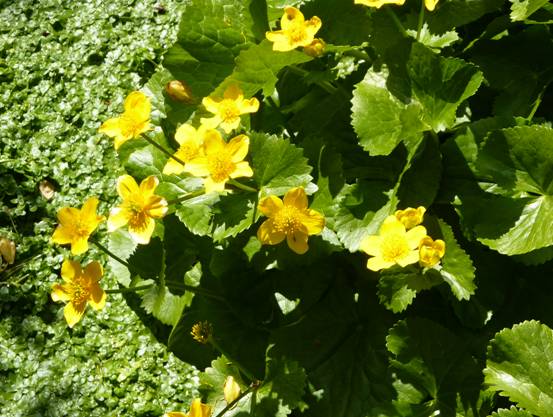
Water buttercup likes living in the water
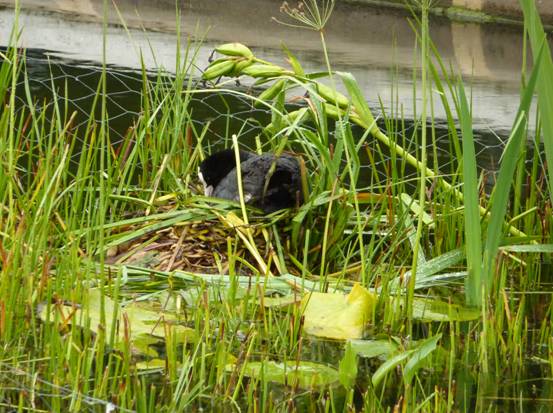
Waterfowl like coots like to build their nests on the water
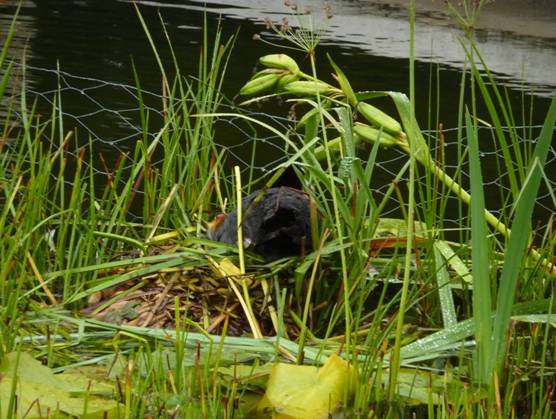
This coot has a little baby – you can just see its red head to the left
You can’t see the father because he is diving under the water
looking for weed to eat at this moment
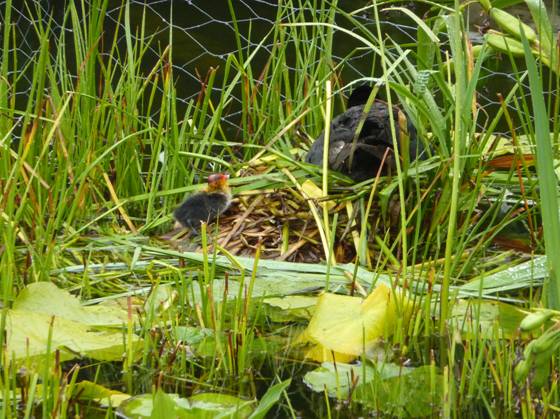
The little baby decides to go for a walk – it is only the size of an egg cup!
This baby was born at the end of July
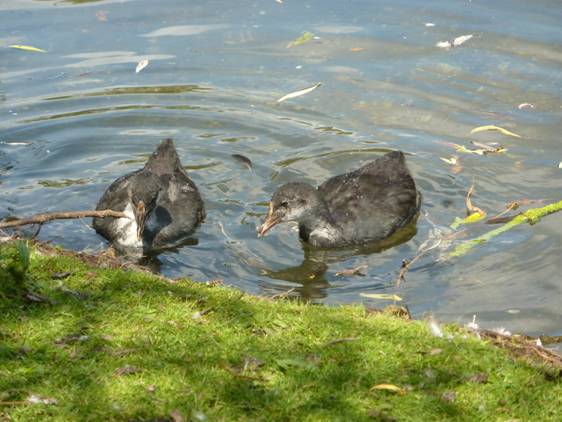
These babies were born earlier in the year
The babies lose the red colour at the tops of their heads
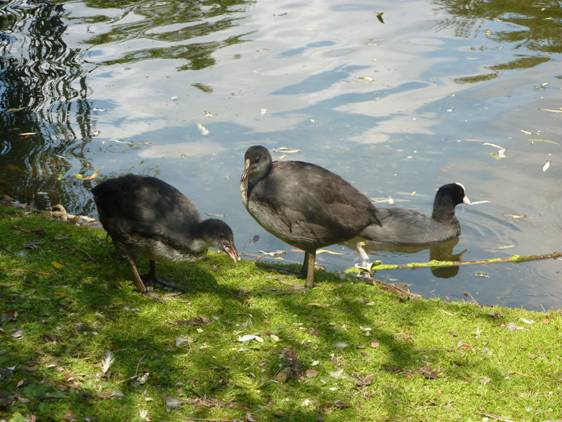
The white crown begins to develop at the top of their beak
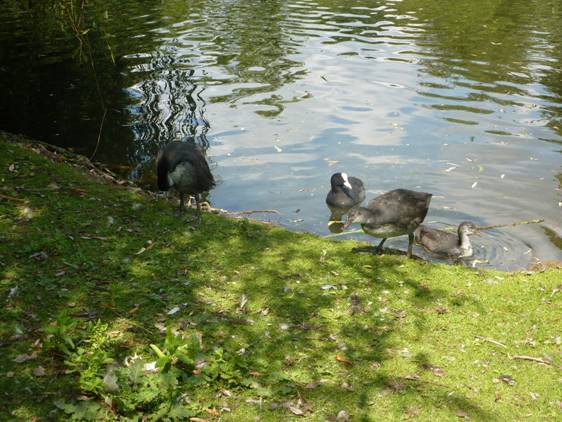
The family stays together while the youngsters are growing up
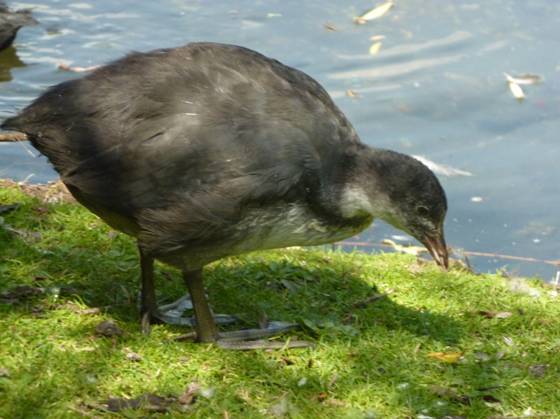
Coots have enormous feet for walking on soft marshy ground
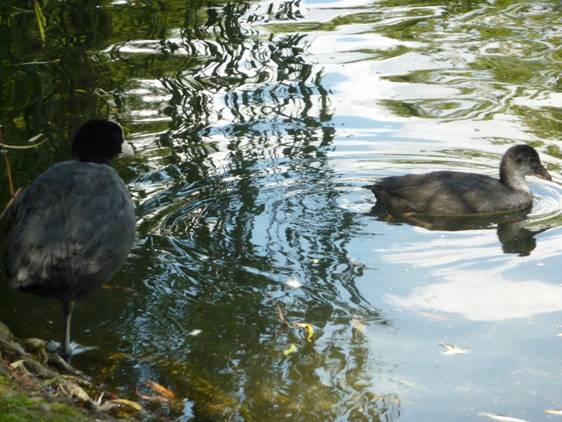
The parents watch over their family all the time
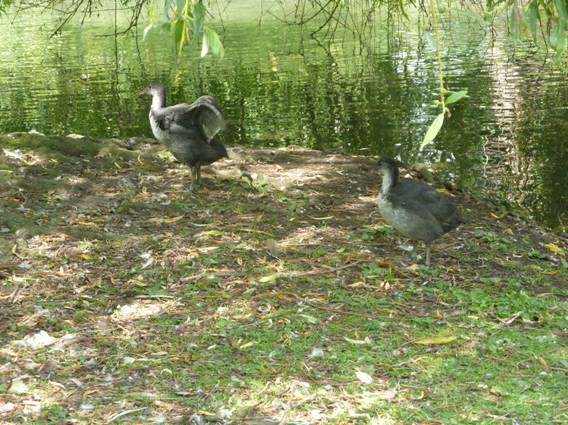
The youngsters want to go off on their own
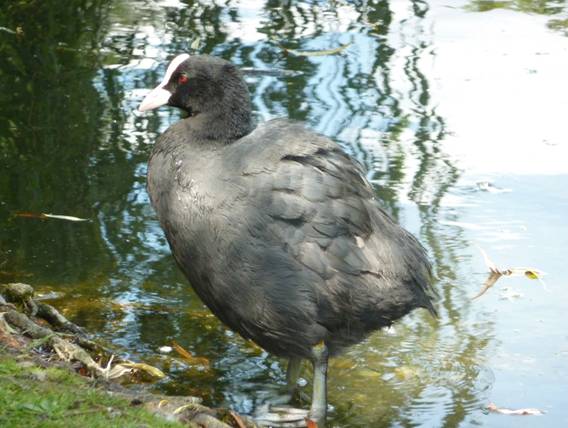
The parents are still watching them
Coots seem to be a different shape when they are out of the water
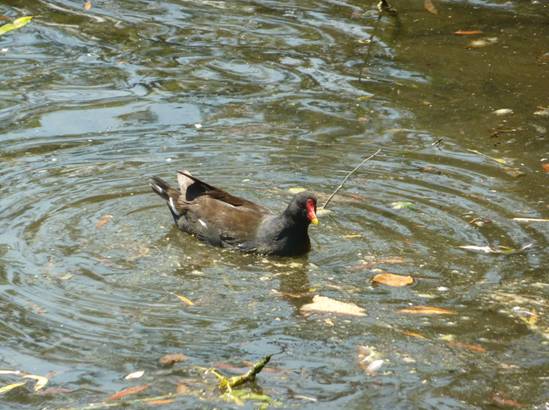
Moorhens have red faces
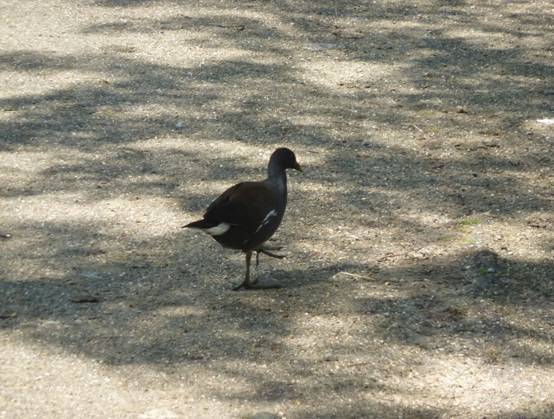
They like walking along the bank
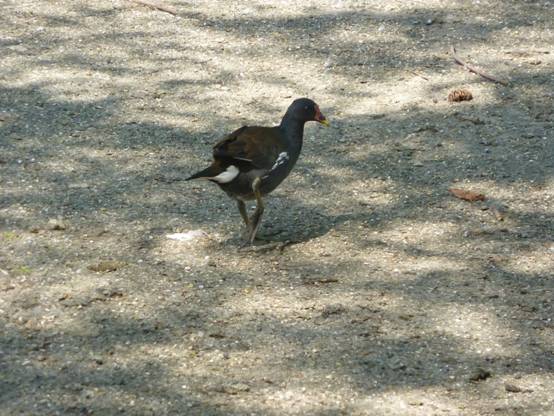
They are more timid than the coots
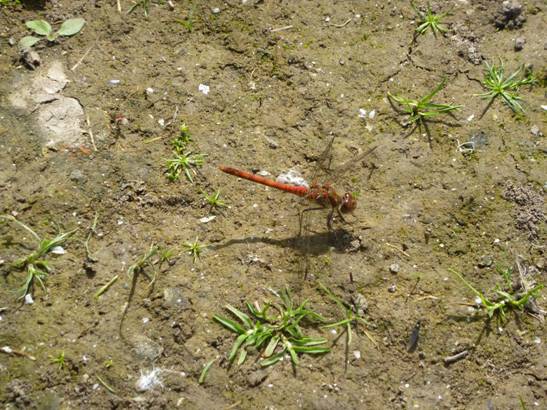
A red dragon fly comes to rest at the side of the pond
(Male Common Darter)
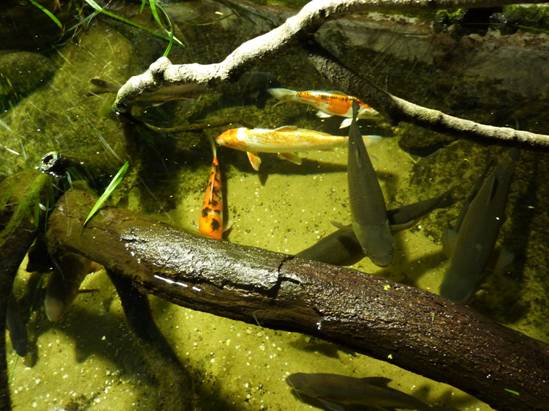
Garden ponds are also good for wildlife

They can be formal or informal
![]()

 THE SALTY SAM NEWS DESK
THE SALTY SAM NEWS DESK

Auntie Alice told me that although she gave you some tips on knitting and sewing she hasn’t mentioned cooking yet. So here are her cooking tips.
Auntie Alice’s Cooking Tips
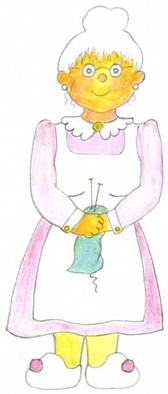
- You should get your ingredients weighed out and ready to use when you are cooking things that cook very quickly like eggs because you will not have time to find things once the cooking process has begun.
- You should turn your oven on before you prepare a dish to go in it because the temperature should be the same through the whole time of the cooking unless the recipe says otherwise. The oven needs time to heat up.
- If you are allowed to put things into and take things out of the oven, always use oven gloves to protect your hands and watch that you don’t catch your arms on the sides of the oven. If you do burn yourself, run your skin under a cold, running tap for a few minutes immediately – and watch out for steam; it can scald you.
- Steam can escape when you take the lid off things taken out of a microwave sometimes, so be wary and keep your hand to the side of the dish and take the cover off with a tool.
- Don’t put metal dishes into a microwave and don’t rest plastic items on the top of a cooker – even after a cooker is switched off it will be hot. It will take time to cool down.
- Never forget to put the top on a liquidizer before you switch it on.
- Boiling means you will see bubbles rising rapidly to the top of a liquid and simmering means you see an occasional bubble rising up because the heat is lower.
- All good cooks clear up after themselves.
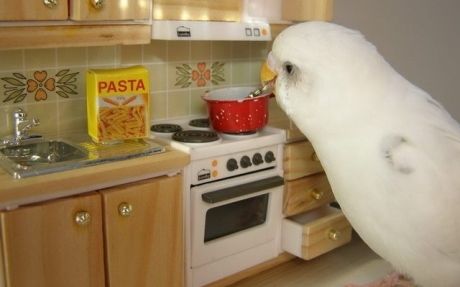

NEWSDESK MINIMAKE
A KNITTED DOLL’S STRIPY DRESS
And here is a dress for the knitted doll from last week’s post. Look out next week for another pattern.
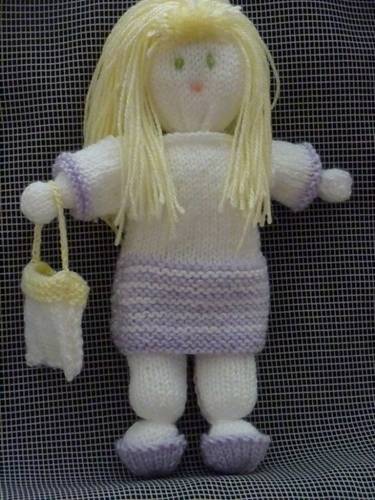
FRONT (KNIT ONE)
Using 4mm knitting needles and mauve dk yarn cast on 24 stitches
Knit 4 rows of garter stitch
Using white dk yarn knit 2 rows of garter stitch
Using mauve dk yarn knit 2 rows of garter stitch
Repeat these 2 rows 4 times
Using white dk yarn knit 24 rows of stocking stitch
Cast off
BACK (KNIT TWO)
Using 4mm knitting needles and mauve dk yarn cast on 12 stitches
Knit 4 rows of garter stitch
Using white dk yarn knit 2 rows of garter stitch
Using mauve dk yarn knit 2 rows of garter stitch
Repeat these 2 rows 4 times
Using white dk yarn knit 34 rows of garter stitch
Cast off
SLEEVES (KNIT TWO)
Using 4mm knitting needles and mauve dk yarn cast on 24 stitches
Knit 2 rows of garter stitch
Using white dk yarn knit 8 rows of stocking stitch
Cast off
TIP
Slip the first stitch of every row except when changing colour
TO MAKE UP
With right sides together
Using over-sew stitches sew 2cm/¾ inch up shoulder seam
Attach the tops of the sleeves to the shoulders
Sew under arm and side seams
Sew half way up the back seam
Using a crochet hook make 70 chains in a length of mauve yarn twice and attach to the back top corners of the dress
Dress the doll and tie the dress on
TIP
You can make other dresses using the same pattern but in a different way. You could knit it in one colour, or knit the garter stitch panels in a different colour from the stocking stitch panels, or knit the sleeves in a different colour from the rest of the dress. It would be a good way of using up small balls of left-over yarn.
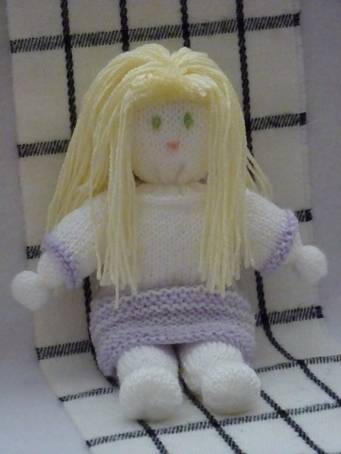

*********************
TO ADVERTISE ON THIS BLOG
PLEASE CONTACT:
christina.sinclair.ads@aol.co.uk
**********************


Pet Care
lf you want to keep goldfish or koi carp in a pond in your garden, it is a much kinder way of keeping them that trapped in a little bowl in your house.
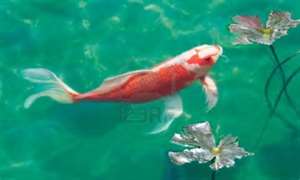
They really don’t take much looking after. They can grow to a good size and a great age and might even come to your hand to be fed. Call them when you go out with their food. Fish can hear you from under the water and will come to recognise your voice.
Make sure that the plants in your pond are established first. Put some plants in that will keep the water clear. At least one third of the surface of the water should be clear of plant cover.
lf you start up a new pond, wait a week before you put plants in and one month before you put fish in.
lf the water goes green, you can get some barley straw, stuff it into a pair of old tights and weigh them down with stones which will take them to the bottom of the pond.
A farmer accidently dropped a bale of barley straw into his pond once, didn’t get it out straight away and noticed some days later that the water was clearing. Now we can all know what to do with a cloudy pond.
Any containers you put your plants in should have gravel at the top so that the fish don’t disturb the soil inside and make the water muddy.
Water lilies are beautiful but don’t plant so many that the surface of the pond is completely covered. Clear out autumn leaves that fall into the pond as well.
Test the water with litmus paper – the ph balance should be between 7 and 9. You can buy chemicals to put in the water to correct the balance if you need to.
When the winter comes, you can float a ball on the surface to help stop ice forming, but if the ice does become thick don’t try to break it. The fish won’t like it. Rest a pan of hot water on the surface instead. Don’t fill the pan up to the top though. You don’t want to spill it on your hands when you carry it across the garden to the pond.
Or maybe you could put some hot water in a plastic milk container. Fill it by using a funnel, put the lid on and carry it by the handle. Don’t forget to wear gloves. lf you slip, you won’t then spill hot water on yourself.
lf the summer is hot, make sure that the level of the water is topped up. lf the fish are gasping at the surface, this means that there is not enough oxygen in the water. ln quite a small pond you might need a pump or waterfall to add oxygen into the water.
lf you have small children living in your house or visiting your house, they could fall into your pond. lf herons live in your area, they will want to eat your fish. You can put a grill just under the surface of the water to keep both children and fish safe.
Always put at least one slope at the side of any pond in your garden to enable wildlife to climb out if they fall in. lt is a good idea to have one with a surface that will not become too slippery so that little feet can get a grip on it.
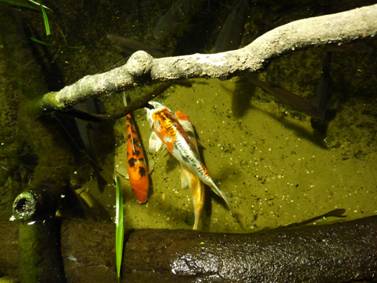
When your pond is established (settled) you can get some goldfish.
Go to a stockist with a good reputation and tell them how big your pond is.
They can give you advice on which breeds you can choose from, the maximum number you should keep in your pond and what food you should buy for them. Know the measurements of your pond when you go to the shop.
Fish need more food in the summer and less in the cool weather. ln the really cold weather in the middle of winter you won’t need to feed them.
Keep an eye on your fish to make sure that they always look healthy.
Watching fish makes you feel relaxed and that is healthy for you. ![]()
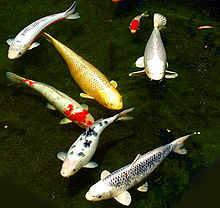
Koi in a man-made pond
![]()
BLOW MY FOGHORN!!!
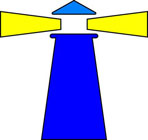
PLUS
Salty Sam fans can join in with their comments and share them with children all over the world. You will need permission if you are not an adult.
Enter your e-mail address to subscribe to my blog and receive new Salty Sam Blog Posts for free by e-mail every week. Your address will be kept private and will not be shared with any third party.
Sign me up at the side bar



![]()
lt’s the Weekend!

HOW TO MAKE A SUSSEX POND PUDDlNG
You will need
225g/8oz self-raising flour
110g/4oz vegetable suet
50ml/2floz water
75ml/3floz milk
115g/4oz cold salted butter
115g/4oz brown sugar
1 large un-waxed lemon
Get a grown-up to cut the lemon into slices and remove the pips for you. Or the lemon can be skewered several times and put in the pudding whole – wash it first.
You can also add a large handful of sultanas or currants to the filling if you like – this will turn your recipe into a Kentish Puddle Pudding.
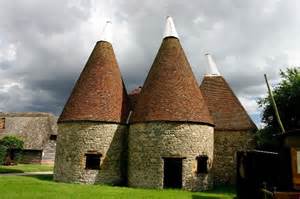
Oast houses are a symbol of Kent
(They are used to dry hops in the beer brewing process)
This is a good recipe for a cold day when you want to warm yourself and the kitchen up.
- Mix the flour and suet together in a bowl.
- Put the water and milk into a jug and then add this liquid to the bowl a little at a time stirring it in each time.
- When the dough is ready, take ¾ of it out and put it onto a floured surface.
- Roll out the dough into a circle and line a 1.4 litre pudding basin that is well buttered inside. (You can do this by rubbing the inside of a butter paper wrapping around inside the bowl.) The dough should come above the top of the bowl.
- Roll out the rest of the dough into a circle to make a lid.
- Put half the butter in the bottom of the case and then half the sugar on top of that.
- Put your lemon slices or whole lemon on top and then the rest of the butter and sugar on top of that.
- Seal with you dough lid. Pinch it very tightly around the edges.
The pudding needs to have a lid put on top of it now which is a piece of greaseproof paper with a pleat in it and then a piece of foil with a pleat in it. The pleats are needed to allow for expansion. The lid needs to be tied on with a piece of string – the ends of the string are then looped up to make a handle. You may need an adult to help you with this because it can be a bit fiddly. Check that the handle is really secure.
For the next part you will definitely need help from an adult (unless you are an adult reading this blog ![]() ). Little children should not be dealing with boiling water and you should always ask permission to use a cooker.
). Little children should not be dealing with boiling water and you should always ask permission to use a cooker.
Put a trivet or upturned saucer in a large saucepan.
Get an adult to put the saucepan on the hob and half fill with boiling water from a kettle then they should lower the pudding basin in gently holding onto the string handle. Get them to check your handle has been made properly first.
The pudding needs to be steamed for about three and a half hours. The water needs to be simmering and someone needs to check it from time to time to see if the water needs topping up with more hot water. (About every thirty minutes.) Use a timer to help to remind you.
The handle is now very useful to take the pudding out.
Serve the pudding with lots of custard.
![1513833[1]](https://www.christina-sinclair.com/wp-content/uploads/2015/07/15138331.gif)
This pudding was probably made originally for people using up a lot of energy working in the fields of the Sussex countryside – it has a lot of calories in it!

Please note that the material on this blog is for personal use or for use in classrooms only.
It is a copyright infringement and, therefore, illegal under international law to sell items made with these patterns.
Use of the toys and projects on all of these blogs is at your own risk.
©Christina Sinclair Designs 2015

ChildLine is a private and confidential place for you to talk. This means that whatever you say, stays between you and ChildLine. You don’t even need to give your real name if you don’t want to.
If you have a problem and you want to talk to someone please telephone them.
The calls are free. (This is a British telephone number.)
Calls to this number will not be listed on a telephone bill.
![]()


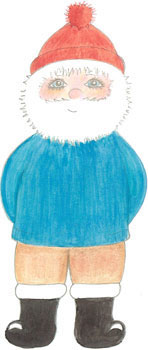
Hello Salty Sam
i thought i would be the first to make a comment here
Great stuff – keep up the brilliant writing!!!
Thank you so much Nate!
Hello Salty Sam
I saw some spawn in our garden pond today.
Well spotted lan! Keep an eye on it and see what it turns into. 🙂